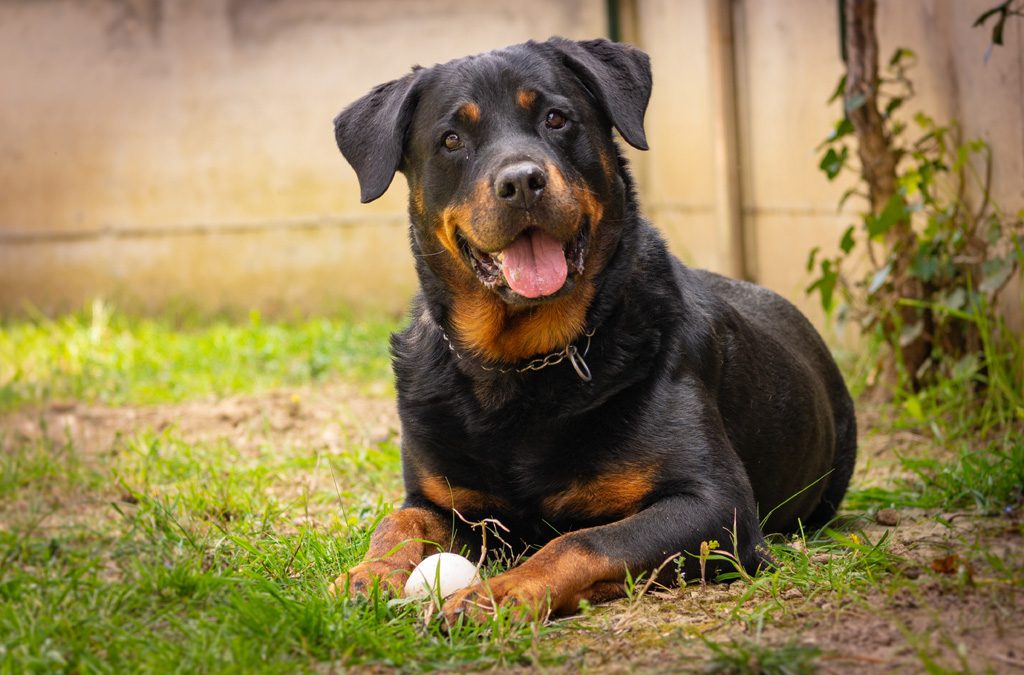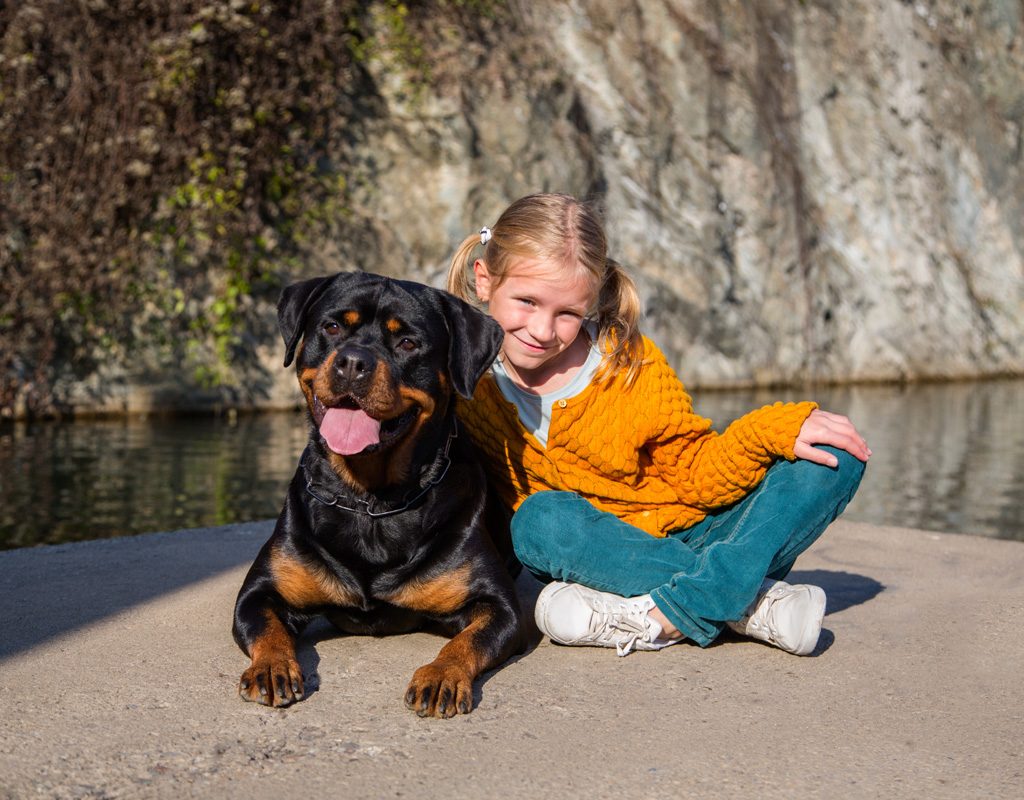Many people believe that Rottweilers are vicious. The breed is banned from some municipalities, and many insurance companies refuse to cover owners of Rottweilers. Blame negative publicity along with irresponsible breeders and inappropriate training methods for giving these dogs, fondly referred to as Rotties, a bad reputation. According to the American Kennel Club (AKC), a well-bred and properly raised Rottie will be calm, loving, confident, and courageous.
Five cute traits that will make you fall in love with Rottweilers
- Rottie owners say that beneath that large, muscular exterior lies a goofy, playful teddy bear.
- Many Rottweilers underestimate their size, happily plopping into a lap for some cuddle time.
- Along with being protectors, these dogs are sensitive to people’s feelings and make excellent comfort dogs.
- Sociable and fun-loving Rotties want to be included in family activities.
- Rottweilers love attention and have endearing ways of getting it — for example, by nudging a hand with a cold nose or dropping their huge head onto a lap.

Are Rottweilers good guard dogs?
Rotties are naturally protective and devoted to their families. According to experts at the American Rottweiler Club (ARC), the breed’s size and bark are often enough to discourage most intruders. Here are some pros and cons when it comes to considering this breed as a guard dog for your home.
Why a Rottweiler might be a good protector for you
- Rotties learn to recognize friends and welcome them into the home while guarding against intruders.
- With proper training, Rotties can be wonderful protectors and playmates for children. Children and Rotties (like any dog breed) need to be taught to respect one another and should be supervised when interacting.
- Rotties are intelligent, highly trainable, and eager to please. They do best with calm, assertive owners and respond well to positive motivation training methods.
Why a Rottweiler might not be the best breed for your family
- Rottweilers need extensive socialization and training to be good family pets. They can have a stubborn streak and because of this are not considered a good choice for first-time dog owners.
- It takes a significant investment of time and money to meet the exercise and training requirements for raising a happy and healthy Rottie.
- Because Rotties have big, powerful bodies, some breeders don’t recommend them for homes with toddlers. Rottweilers were originally bred to herd cattle, so out of instinct, they may “bump” your children in an effort to herd them. The size of your home and the age of your children should factor into whether or not this is the right breed for you.
Will Rottweilers protect their owners?
Rottweilers are known to be loyal and protective, with a natural instinct to guard their home and family members. Like all dog breeds, Rotties require early socialization to help them grow into well-adjusted dogs. Neglect and lack of socialization and training can cause Rottweilers to become overly territorial and develop aggressive tendencies.
Will a Rottweiler protect other dogs?
Rottweiler puppies who are raised around other dogs and pets are usually wonderful with them, say breed experts. They become loving, gentle, and protective of all family members including other dogs in the home. However, integrating an older Rottweiler into a home that already has a dog can be challenging, according to the ARC. The same is true of adding a new dog to a home where a Rottie has been the top dog.

What is the best guard dog for a family?
Well-trained and socialized Rotties make great guard dogs for experienced, responsible pet owners. Before choosing the best breed for your family, consider the dog’s temperament as well as their exercise, grooming, and training needs. Other breeds to consider when looking for a family guard dog include the following:
Airedale terrier: This breed can be patient and docile around children while also protecting your home.
Boxer: This muscular, athletic breed is patient and protective of their family and makes a terrific companion for children.
Great Dane: The sheer size of this powerful breed is enough to deter any intruder. Great Danes are people-pleasing dogs and are patient and gentle around children.
Saint Bernard: Referred to as “nanny dogs” by the AKC, these gentle giants love hanging out with children and are quick to protect their families if they sense danger.
If you decide that a Rottweiler is a good fit for your family, be sure to do lots of research before choosing a puppy. Reach out to your veterinarian or the ARC for referrals to reputable breeders or rescue groups. With the proper training, socialization, exercise, and mental stimulation, a Rottie can make a wonderful family companion.




